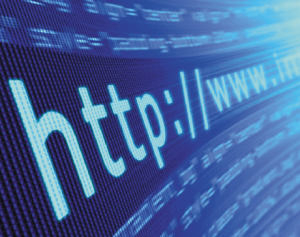 Digital technologies such as the internet, mobile phones and other information and communication technologies (ICTs) hold potential as drivers of productivity, economic growth and even, good governance but are not spreading fast enough or yielding benefits equally for all, according to the World Bank.
Digital technologies such as the internet, mobile phones and other information and communication technologies (ICTs) hold potential as drivers of productivity, economic growth and even, good governance but are not spreading fast enough or yielding benefits equally for all, according to the World Bank.
The “digital dividends” are not spreading fast enough due to the gap in access to digital technologies, according to a flagship report of the World Bank, the “World Development Report 2016: Digital Dividends.”
The report, launched by the World Bank Group in Accra on March 23, 2016 says that almost 60 per cent of the world’s population – about four billion – still do not have access to the Internet and cannot participate fully in the digital economy.
As of 2014, 80 per cent of Ghanaian households had mobile phones but only about 12 per cent had access to Internet, according to the World Gallup survey.
Affordability of the Internet in Ghana is also rated at 42.84 per cent with room for improvement, according to an assessment of Internet affordability in 51 countries, by the Alliance for Affordable Internet (A4AI), a global affordable Internet advocacy coalition.
According to A4AI, the affordability of Internet in Africa is about three times the threshold of affordability set by the United Nations: 500 megabytes of data for less than five per cent of one’s average monthly income.
A survey of more than 6,000 consumers in Ghana by a consumer advocacy group for A4AI also found that as many as 96 per cent find the transparency in pricing of mobile Internet services problematic: 72 per cent for mobile Internet and 24 per cent for fixed broadband.
Meanwhile ,Goal 9 of the Sustainable Development Goals (SDGs) has the target of affordable universal Internet access by 2020 in the least developed countries, but according to A4AI, the goal is not likely to be achieved with current trends.
Dhanaraj Thakur, Research Manager of A4AI , said about 111 countries have met the target, but only 15 per cent have mobile Internet penetration rates above 25 per cent, and only nine per cent have met the target for the bottom 20 per cent of income earners.
“When you combine the cost of a very simple smartphone – for example hypothetically around $50 – with the cost of data, in most countries an average 20 per cent of income earners will not be able to afford that basic broadband package combined with the phone,” he said.
Another identified barrier to universal access, is income inequality and a gender gap, driven by income and affordability on one hand, and knowledge of the Internet and usage skills on the other. According to the World Bank report, males, the wealthy and the young are the groups more likely to have Internet access.
Mr Thakur said overall, women are 50 per cent less likely than men to use the Internet but there is still a near-total absence of gender-sensitive broadband plans and gender-based approaches to improving access to the Internet and its affordability.
“All of these issues need to be addressed; both at the policy level – the broadband policy – and also in terms of training and skills,” Thakur said.
For greater equity and increase of the “digital dividends” of digital technologies, the report recommends greater market competition, public-private partnerships and effective regulation of Internet and mobile operators. These could increase private investments that would make the Internet more affordable and speed up universal access.
By Emmanuel Odonkor
